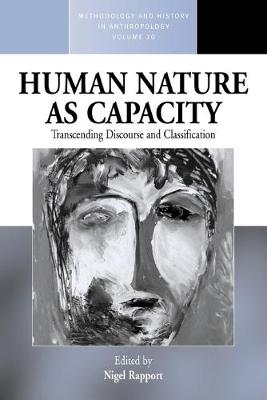Methodology and History in Anthropology
3 primary works
Book 20
What is it to be human? What are our specifically human attributes, our capacities and liabilities? Such questions gave birth to anthropology as an Enlightenment science. This book argues that it is again appropriate to bring “the human” to the fore, to reclaim the singularity of the word as central to the anthropological endeavor, not on the basis of the substance of a human nature – “To be human is to act like this and react like this, to feel this and want this” – but in terms of species-wide capacities: capabilities for action and imagination, liabilities for suffering and cruelty. The contributors approach “the human” with an awareness of these complexities and particularities, rendering this volume unique in its ability to build on anthropology’s ethnographic expertise.
Book 24
The significance that people grant to their affiliations as members of nations, religions, classes, races, ethnicities and genders is evidence of the vital need for a cosmopolitan project that originates in the figure of Anyone – the universal and yet individual human being. Cosmopolitanism offers an alternative to multiculturalism, a different vision of identity, belonging, solidarity and justice, that avoids the seemingly intractable character of identity politics: it identifies samenesses of the human condition that underlie the surface differences of history, culture and society, nation, ethnicity, religion, class, race and gender. This book argues for the importance of cosmopolitanism as a theory of human being, as a methodology for social science and as a moral and political program.
Book 24
The significance that people grant to their affiliations as members of nations, religions, classes, races, ethnicities and genders is evidence of the vital need for a cosmopolitan project that originates in the figure of Anyone – the universal and yet individual human being. Cosmopolitanism offers an alternative to multiculturalism, a different vision of identity, belonging, solidarity and justice, that avoids the seemingly intractable character of identity politics: it identifies samenesses of the human condition that underlie the surface differences of history, culture and society, nation, ethnicity, religion, class, race and gender. This book argues for the importance of cosmopolitanism as a theory of human being, as a methodology for social science and as a moral and political program.


